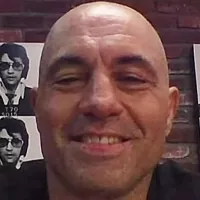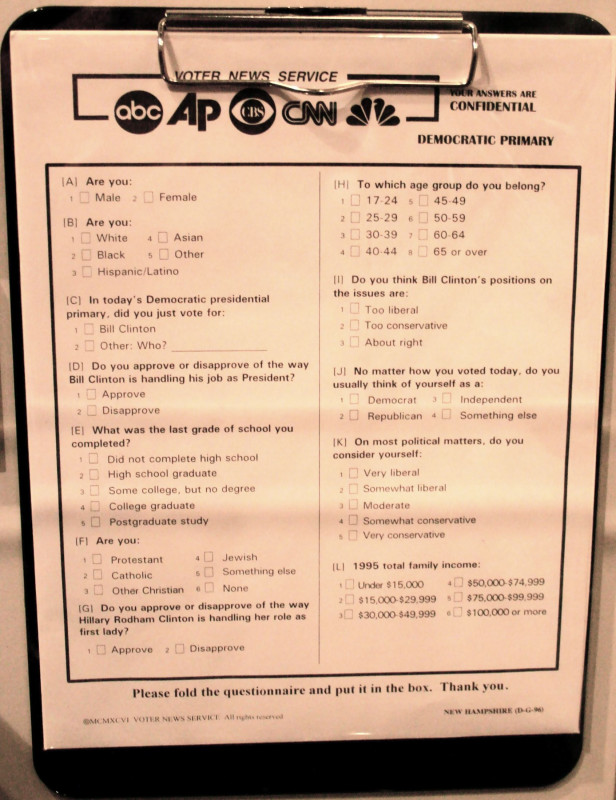An opinion poll is a survey used to gauge public opinion by collecting data from a sample population. The goal is to extrapolate general trends and opinions that represent the larger population within a certain degree of confidence. Pollsters are the individuals responsible for conducting these surveys and analyzing the data obtained. These polls are widely used to understand public sentiment on various issues and can influence decision-making in fields like politics and marketing.
1916: The Literary Digest predicts Woodrow Wilson's election
In 1916, The Literary Digest correctly predicted Woodrow Wilson's election as president by conducting a national survey. This survey involved mailing out millions of postcards and counting the returns.
1936: The Literary Digest experiences error due to non-representative samples
In 1936, The Literary Digest's experience highlighted the error resulting from non-representative samples. Their methodology led to a sample not representative of the population, contributing to inaccurate polling results.
1936: The Literary Digest incorrectly predicts Alf Landon's win
In 1936, The Literary Digest's survey of 2.3 million voters incorrectly suggested that Alf Landon would win the presidential election, while Roosevelt was re-elected by a landslide. Research later attributed the error to participation bias and a non-representative sample.
September 1938: Jean Stoetzel creates IFOP
In September 1938, Jean Stoetzel, after meeting Gallup, established IFOP (the Institut Français d'Opinion Publique) in Paris, marking the first European survey institute.
1939: Stoetzel starts political polls with "Why die for Danzig?"
In the summer of 1939, Jean Stoetzel initiated political polls with the question "Why die for Danzig?" to gauge public support or dissent, in connection with Marcel Déat.
1945: Gallup correctly predicts Labour's victory in the UK
In 1945, Gallup's subsidiary in the United Kingdom accurately predicted Labour's victory in the general election, contrasting with most commentators who expected a Conservative win led by Winston Churchill.
1947: Louis Harris joins Elmo Roper firm
In 1947, Louis Harris entered the field of public opinion by joining the Elmo Roper firm, later becoming a partner.
1947: Allied occupation powers create survey institutes in Germany
In 1947, the Allied occupation powers began establishing survey institutes in the Western occupation zones of Germany to better manage denazification efforts.
1948: Allied occupation powers create survey institutes in Germany
In 1948, the Allied occupation powers continued establishing survey institutes in the Western occupation zones of Germany to better manage denazification efforts.
1948: Polling fails to predict Truman's victory
In the 1948 US presidential election, major polling organizations like Gallup and Roper incorrectly predicted that Thomas Dewey would defeat Harry S. Truman. Truman won by a narrow margin.
1952: Polling errors in the presidential election
In 1952, substantial polling errors occurred in the presidential elections, though the winner was correctly predicted, the extent of their winning margin was not.
1970: Polls fail to predict the Conservative election victories in the UK
In 1970, most polls failed to predict the Conservative election victories in the United Kingdom.
February 1974: Polls fail to predict Labour's victory in the UK
In February 1974, most polls failed to predict Labour's victory in the United Kingdom.
1976: Gerald Ford's Presidential Campaign
In 1976, Douglas Bailey assisted with Gerald Ford's presidential campaign. This was before tracking polls became popular and candidates had to guess what the audience thought.
1980: Polling errors in the presidential election
In 1980, substantial polling errors occurred in the presidential elections, though the winner was correctly predicted, the extent of their winning margin was not.
1992: Roper Organization survey on the Holocaust produces inaccurate results
In 1992, a Roper Organization survey on the Holocaust used a double-negative question which resulted in inaccurate findings. The question read "Does it seem possible or impossible to you that the Nazi extermination of the Jews never happened?" which indicated that 22% of respondents believed the Holocaust might not have happened. When reworded, only 1% expressed the same sentiment.
1992: Polls fail to predict the Conservative election victories in the UK
In 1992, most polls failed to predict the Conservative election victories in the United Kingdom.
1993: Polls incorrectly predict National Party majority in New Zealand
In 1993, polls leading up to the New Zealand general election predicted the governing National Party would increase its majority. The preliminary results, however, showed a hung parliament. The official count saw National gain Waitaki to hold a one-seat majority.
1996: Cognitive Response Theory Described
In 1996, Petty and Cacioppo described the "cognitive response" theory, asserting that a voter's response to a poll may not align with their initial perception, leading to the creation of a "mental list" that reinforces or alters their opinion and voting behavior.
1996: Polling errors in the presidential election
In 1996, substantial polling errors occurred in the presidential elections, though the winner was correctly predicted, the extent of their winning margin was not.
1997: Strategic voting in the United Kingdom general election
In the 1997 United Kingdom general election, Michael Portillo's constituency of Enfield Southgate was believed to be a safe seat but opinion polls showed the Labour candidate Stephen Twigg steadily gaining support, which may have prompted undecided voters or supporters of other parties to support Twigg in order to remove Portillo.
2000: Gallup poll generates controversy during US presidential election
During the 2000 U.S. presidential election, a Gallup Organization tracking poll generated controversy due to its volatility. It initially showed Al Gore with an eleven-point lead, followed by a poll two days later showing George W. Bush ahead by seven points. The volatility was attributed to an uneven distribution of voters in the samples.
2000: Polling errors in the presidential election
In 2000, substantial polling errors occurred in the presidential elections, correctly predicting the winner of the popular vote but not the Electoral College.
2003: Percentage of wireless households reported
In 2003, only 2.9% of households were wireless (cellphones only).
2004: Issue of cell phone users identified
In 2004, the issue of cell phone users was first identified as a potential source of error in polling, but it gained prominence only during the 2008 US presidential election.
2006: Percentage of wireless households reported
In 2006, 12.8% of households were wireless (cellphones only).
2007: Pew Research Center studies mobile phone users
In 2007, the Pew Research Center conducted studies on mobile phone users in the US, concluding that while cell-only respondents differed from landline respondents, these differences were not significant enough to alter general population survey estimates when weighted according to US Census parameters.
2008: Cell phone inclusion in polls impacts US presidential election results
In 2008, during the US presidential election, polls that included mobile phones in their samples showed a larger lead for Obama, than polls that did not. This highlighted the impact of cell phone usage on polling accuracy.
2015: Levada Center Director's Statement
In 2015, the director of the Levada Center stated that Russian poll results cannot be compared to those in democratic states due to the lack of political competition and the influence of state-controlled media.
2015: Polls predict a hung parliament in the UK election
In the 2015 election, virtually every poll predicted a hung parliament with Labour and the Conservatives neck and neck, but the actual result was a clear Conservative majority.
2016: Inaccurate exit polls mislead election reporting during U.S. primaries
In 2016, during the U.S. primaries, CNN reported that the Democratic primary in New York was too close to call, based on exit polls. However, the vote count revealed that Hillary Clinton won the state by a significant margin, making the exit polls misleading.
2016: Polling errors in the presidential election
In 2016, substantial polling errors occurred in the presidential elections, correctly predicting the winner of the popular vote but not the Electoral College.
2016: Effect of false stories spread throughout social media on the U.S. presidential election
Regarding the 2016 U.S. presidential election, evidence suggests that false stories spread throughout social media may have played a role in the outcome. These fake news stories tended to favor Donald Trump over Hillary Clinton.
2017: Herb Asher discusses sample techniques in chapter four
In 2017, Herb Asher's chapter four discusses sample techniques, emphasizing the importance of probability sampling, statistical theory, sample size, and response rates in scientific polling.
2017: Polls predict an increased Conservative majority in the UK election
In 2017, most polls predicted an increased Conservative majority, but the election resulted in a hung parliament with a Conservative plurality. Some polls correctly predicted this outcome.
2022: Russia's War Censorship Laws
In 2022, Russia enacted war censorship laws which led to the criminal case against Yury Kokhovets in March 2023 for participating in a street poll.
Mentioned in this timeline

Donald John Trump is an American politician media personality and...
Facebook is a social media and networking service created in...

George W Bush the rd U S President - is...

Hillary Diane Rodham Clinton is an American politician lawyer and...
New Zealand is an island country located in the southwestern...
CNN Cable News Network is a multinational news organization founded...
Trending

41 minutes ago Joe Walsh & All-Stars Rock Hometown Tribute to Vets with 'Wichita Lineman' Duet
42 minutes ago Tesla Approved to Launch Autonomous Rideshare Service in Arizona: A New Era
42 minutes ago Dylan O'Brien Stars in Sam Raimi's Outrageous Horror Comeback, 'Send Help'
2 hours ago Idris Elba's squat routine and the dangers of looksmaxxing for young men.
2 hours ago Jamaree Bouyea gets another NBA chance: Suns sign former Bucks guard to contract.

2 hours ago Joe Rogan's Podcast Tops Apple Charts as most Popular Show in 2025
Popular

XXXTentacion born Jahseh Dwayne Ricardo Onfroy was a controversial yet...

Cristiano Ronaldo often nicknamed CR is a Portuguese professional footballer...

Candace Owens is an American conservative political commentator and author...

William Franklin Graham III commonly known as Franklin Graham is...

Bill Clinton the nd U S President - served as...

Charles James Charlie Kirk was a prominent American right-wing political...
